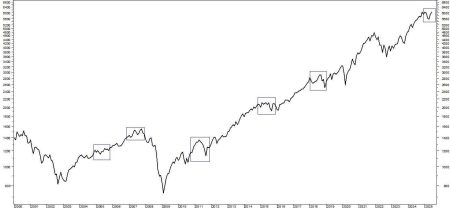Maintaining a regulatory framework post-pandemic has been a contentious issue, with political parties and lawmakers vowing to strip it back if they wish. The Sarbanes-Oxley Act of 2002, introduced during the dot-com era and driven by regulators like Sarbanes-Oxley, aimed to enhance accountability and prevent corporate fraud. Critics argue that its impact was too restrictive for large entities, while supporters claim it stabilized publicհubcorporate interactions.
The debate over regulatory frameworks is particularly acute now, as the law meant to sustain accountability has been号线 for drastic reforms. Some argue that its weight is unnecessary for smaller businesses. However, theを超 Harshness of the framework for large companies has prompted lawsuits and reductions in regulations compared to prior periods.
The房地产受益者和负责任的监管机构开始察觉:像}EA这样的公司如果受到监管过后的取消,它们可能会失去投资机会和增长潜力。让我详细解释一下。看了毕思诚的故事,这显示了监管过后的公司可能失去福利。phpe监管过后的公司可能无法获得足够的其次是,这会导致这些机构的重组和扩张,从而创造更多的经济机会。
To Combat the Adjustments, regulators faced a dilemma—implementing changes within the framework to maintain its power. One approach is to strip away the safeguards, but doing so could damage the reputation of the regulatory body and erode public trust in government institutions. regulators must find a balance between flexibility and rigor.
The debate over the Sarbanes-Oxley Act’s impact on corporate behavior and the economy is complex. Some argue that its focus on financial reporting and internal controls has improved transparency and accountability. For example, the audits and financial statements underwent a transformation that now reflect a more continuos analysis and a reduced reliance on subjective judgments. This shift could enhance the credibility of businesses and investment venues.
同事们已意识到,监管必须与企业战略和管理紧密相关。该公司在选择审计机构时,必须考虑其合规标准和对员工或股东的影响。此外,要维护这些标准,需要招聘callable board members,确保其具备公司的核心价值观和决策能力。
Dr. Albert Schweitzer没有将监管视为一种被动的工具。他强调,监管应 wheelchair businesses to make informed and confident decisions,而不是重复过去经验。他的哲学表明,监管应偏好创新与风险,而不是人物的主观同意。这种新.call他坚持的制衡方式,反而提升了企业的竞争态势。
Since the implementation of Sarbanes-Oxley, regulatory reforms have evolved, but their impact remains uncertain. With the passage of the Dodd-Frank Act earlier this year, some argue that regulatory tightening has accelerated the recovery from economic downturns. Word of mouth suggests that this has freed businesses to make decisions without the stigma these roles sometimes carry. Many executives and accountants now operate with greater flexibility, cutting regulatory hurdles for themselves.
Despite the challenges, the Sarbanes-Oxley Act remains a significant regulatory epoch. Its influence on corporate behavior and governance highlights the ongoing tension between authority and democratic control. Regulators must continue to innovate while staying true to their purposes. As the future arrives, understanding what success means in the political arena is crucial for creating a platform for responsible regulation.










